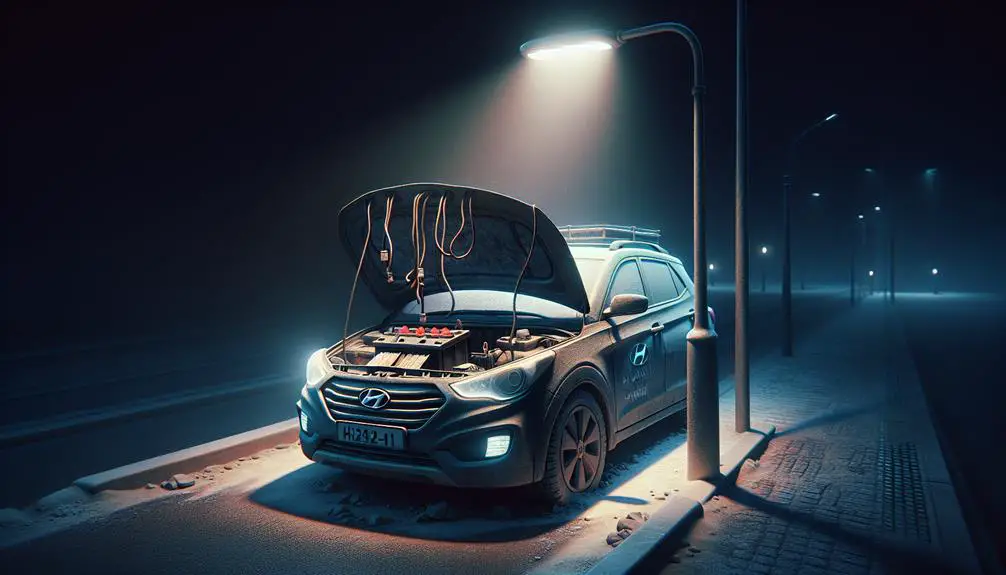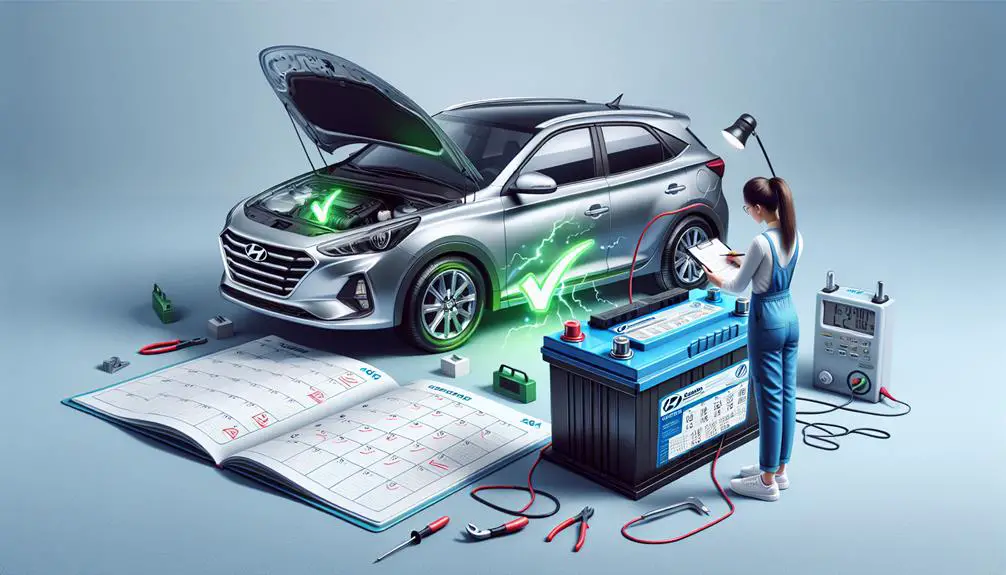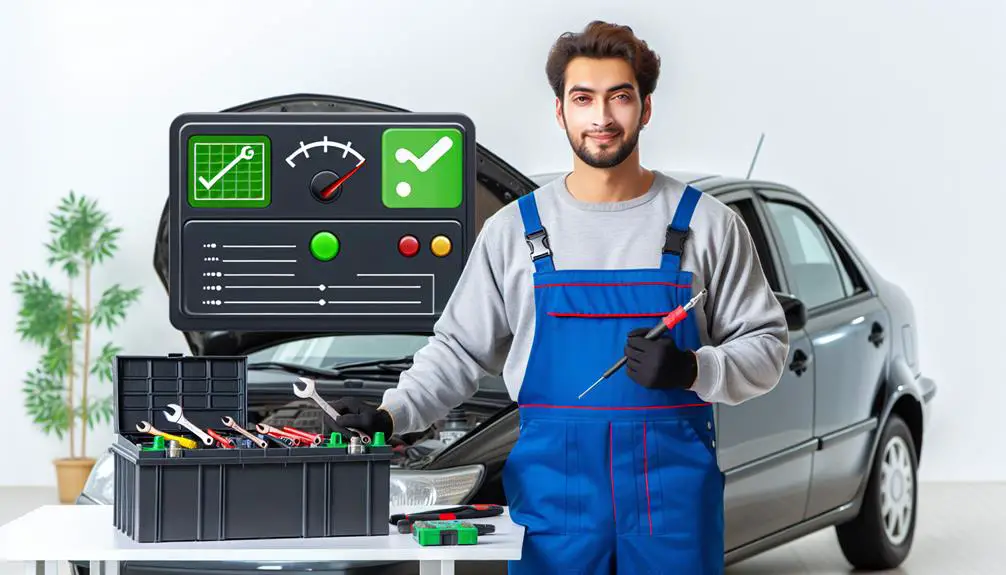Hyundai dead battery issues can be caused by:
- Parasitic drains
- Cold weather
- Model-specific vulnerabilities
Understanding these can lead to lasting solutions and preventive measures.
Common Causes

A dead battery in your Hyundai can happen for several reasons, such as leaving lights on, extreme temperatures, electrical issues, or an old battery. If you forget to turn off your headlights or interior lights, it drains the battery.
Cold weather reduces battery power, while hot weather can cause battery fluid to evaporate, shortening battery life. Problems with the alternator, which charges the battery, can prevent proper charging.
Batteries lose their ability to hold a charge over time, so if your battery is over three years old, it might need testing or replacement. A parasitic drain, where electrical devices use power after the engine is off, can also empty your battery.
To prevent a dead battery, make sure to turn off all lights and maintain your car's electrical system.
Model-Specific Issues
Some Hyundai models have specific problems that can cause their batteries to drain quickly. Knowing these issues can help prevent them. Here are the problems for specific models:
- Hyundai Sonata (2011-2014): These models might've early battery failure because of bad alternators. If the alternator doesn't work well, it doesn't charge the battery properly, leading to dead batteries.
- Hyundai Elantra (2013-2016): These cars have electrical system issues that cause power to be used even when the car is off. This reduces the battery's life.
- Hyundai Santa Fe (2012-2015): Some of these vehicles can't fully charge the battery due to a charging system defect. This problem often shows up as a battery warning light on the dashboard.
- Hyundai Tucson (2015-2017): There are complaints about software issues in the entertainment or navigation systems that keep them running and drain the battery.
- Hyundai Veloster (2012-2016): A rare problem involves a faulty door latch sensor that makes the car think the doors are open, leaving interior lights on and draining the battery.
Knowing these specific issues can help you watch out for things that might drain your Hyundai's battery.
Preventive Measures

To prevent your Hyundai's battery from dying, follow these steps:
- Always get regular maintenance. This helps check and maintain your battery's health, including cleaning any corrosion from the terminals to avoid bad connections.
- Use your car's electrical features wisely. If you don't drive often, using the radio, lights, and air conditioning with the engine off can drain the battery. Try to use these features only when the engine is running.
- Monitor your battery's age. Car batteries usually last 3 to 5 years. If your battery is getting old, consider replacing it to avoid sudden failures.
- If your Hyundai model has known issues with battery drain or electrical problems, look into these. Sometimes, a software update from the manufacturer can fix these issues. Keep updated with any recalls or service bulletins.
Troubleshooting Tips
If your Hyundai's battery stops working suddenly, first check the battery terminals for any corrosion since it can block the electrical connection and stop your car from starting. Clean the terminals with a wire brush and put on anti-corrosion gel to avoid future problems.
Next steps include:
- Look closely at the battery cables for wear or damage. Replace them if you find any issues.
- Use a multimeter to check the battery's charge. It should show about 12.6 volts when the car is off. If it's much lower, you might need to recharge or replace the battery.
- Make sure the alternator works well because it charges the battery when the car runs. You can test it by starting the car and then disconnecting the battery; if the car stops, the alternator might be failing.
- Check for parasitic drains, which are things that keep using power from the battery even when the car is off. Use a test light or multimeter to find them.
- Consider the battery's age. They usually last 3 to 5 years, so if yours is old, you might need a new one.
Professional Solutions

For Hyundai battery problems, it's best to get help from professionals. They can find out why your battery is dying, whether it's the battery itself, the alternator, or another part of the charging system.
First, they'll test the battery to see if it can hold and give out power properly. If the battery is bad, they'll replace it with a new one that fits and works right.
If the battery is fine, the problem might be with the alternator, which keeps the battery charged while you're driving. A bad alternator means the battery won't charge and will die often. They'll also check the starter and all electrical connections for any problems.
Modern Hyundais have a lot of electronics, and sometimes a device might use power even when the car is off, draining the battery. Professionals have tools to find and fix these issues without guessing.
Conclusion
If your Hyundai's battery has died, you're not alone. This can happen for different reasons, sometimes because of the car's specific features or if it needs more care.
It's important to check your car often and use our tips to avoid problems. If things get too hard to fix on your own, it's okay to ask for help from a professional.
With the right steps, you can keep your Hyundai working well and not have to worry about it stopping unexpectedly.